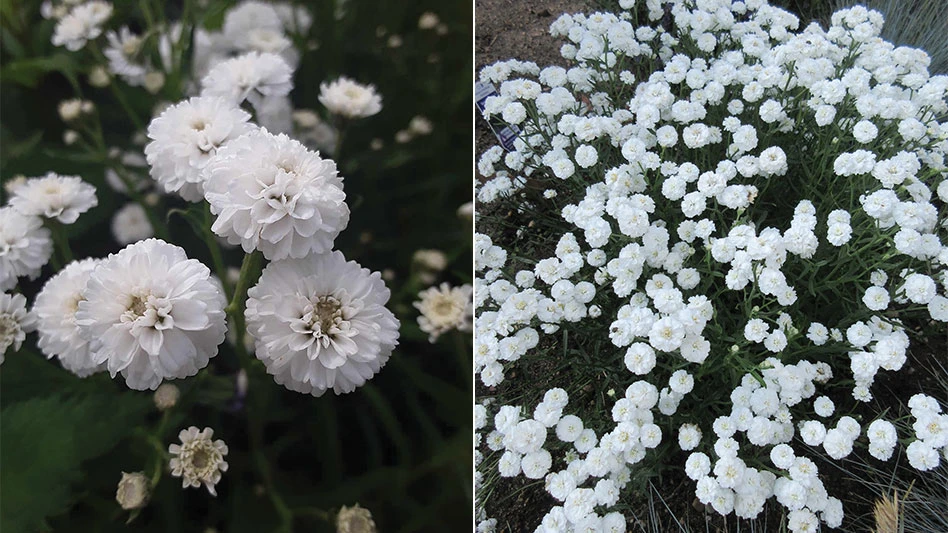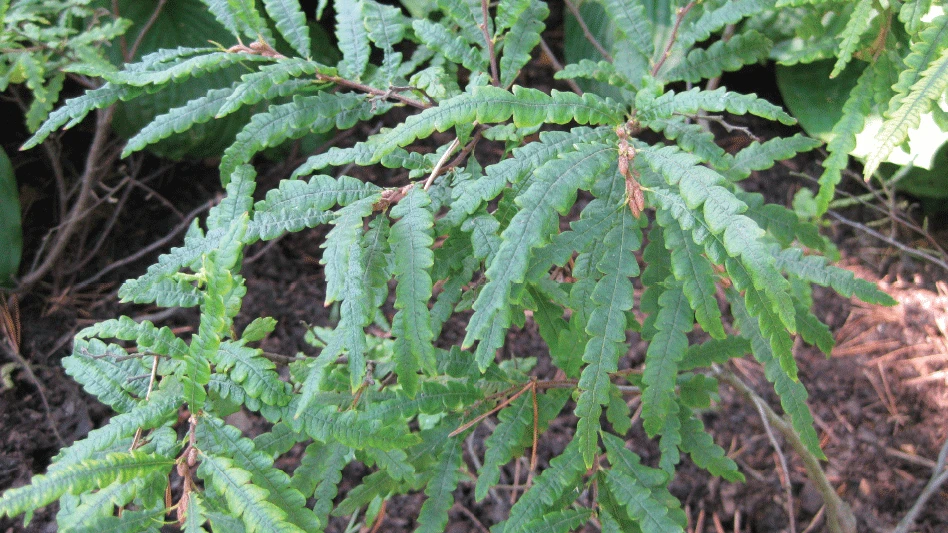_fmt.png)
Syngenta is dedicated to helping greenhouse and nursery growers keep plants strong and healthy, whether it be bedding plants, perennials, ornamental grasses or vegetables grown for transplant.
Many operations continue to add vegetable plants and herbs to diversify their offerings. Pre-finished containers of fruiting vegetable plants and herbs can be produced along with and complementary to spring and summer ornamental portfolios. They are well-suited for patio containers or garden transplants.
“Over the past several years, we have seen a 35% increase in the production of vegetable plants and herbs being produced alongside ornamentals for the retail market,” says Nancy Rechcigl, technical services manager for ornamentals at Syngenta.

As with ornamentals, growers should select vegetable varieties that are more tolerant or resistant to specific disease or insect pest problems.
“Usually the breeder or the company that’s marketing those products have a list of varieties that will be more tolerant to, for instance, bacterial leaf spot,” Rechcigl says. “There’s a lot of breeding going on in vegetable production for tolerance or resistance to bacterial leaf spot because there are not a lot of products available to control that. It is important to always check with the vendor, and if possible, purchase varieties that are more resistant or tolerant to the problem.”
While new vegetable varieties are often bred and screened for resistance to certain diseases, it is still important to scout and be aware of common problems such as leaf spots and mildews.
In addition, identification should always be confirmed through a commercial or state diagnostic lab.
Downy mildew and powdery mildew can spell trouble for production of many lettuces, leafy greens and herbs, as well as cucurbits, peppers and eggplants, Rechcigl says. Tomato growers should scout for leaf spots such as Alternaria and Septoria.
Two-spotted spider mites, whiteflies, thrips and aphids are some of the primary insect pests that affect vegetables.
“It’s a similar pest spectrum like you would see in ornamentals,” Rechcigl says.
Although many of the same diseases and insect pests affect vegetables and herbs as ornamentals, fewer plant protection products are registered for use on them.

“Many growers rely on using biological control agents to keep their ornamentals, vegetables and herbs disease- and pest-free,” Rechcigl says. “However, there are times when disease and pest pressure can get out of control and traditional plant protection products are needed.”
Compatibility with beneficial insects is an important feature of chemical products since many growers incorporate biological control agents during vegetable production.Knowing whether a chemical product is compatible is critical for a successful integrated pest management program (IPM) and saves time, resources and labor. Many Syngenta insecticides have been tested with beneficial insects, which can help growers avoid trial and error.
“New active ingredients are not only screened for their efficacy on different diseases and pest problems, but they’re also evaluated on the effects they may have on non-target organisms — and this includes beneficials — so that we know where they can fit in IPM programs,” says Rechcigl.
Syngenta is committed to working with growers to develop comprehensive solutions to the pest and disease issues they face on a wide variety of plants.
There are several Syngenta products registered to help protect vegetable and herb plants grown for resale in the retail market. Each has demonstrated effective control of many common diseases and insects that can affect vegetable production.
With a commitment to bringing plant potential to life, Syngenta discovers and develops active ingredients to bring more product innovations to the horticultural and agricultural industries.
Citation, Endeavor and Flagship are registered for insect control; while Heritage, Micora, Mural, Segovis and Subdue Maxx are registered for disease control for certain types of vegetables and herbs. Consult product labels for more information.
“Endeavor insecticide is the most recent product from Syngenta that is now registered for use on vegetable plants grown for resale to consumers,” Rechcigl says. “Products are really developed with a purpose and solution in mind. That’s how we show our commitment to the industry.”
To learn more: GreenCastOnline.com/Vegetables
Get curated news on YOUR industry.
Enter your email to receive our newsletters.
Explore the July 2019 Issue
Check out more from this issue and find your next story to read.
Latest from Nursery Management
- Dümmen Orange North America celebrating 25th anniversary in 2025
- Redesigning women
- Illinois Landscape Contractors Association changes name to Landscape Illinois
- 2025 Proven Winners Horticulture Scholarship applications now open
- ICL’s Gemini Granular herbicide now registered for use in California
- Eurazeo Planetary Boundaries Fund acquires Bioline AgroSciences
- The Leading Women of Horticulture
- Leading Women of Horticulture: Dana Massey, Plantworks Nursery







